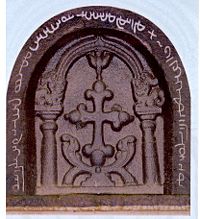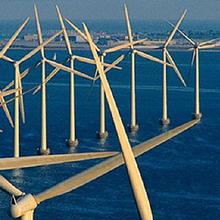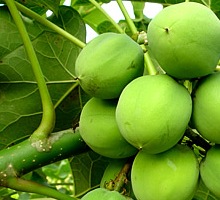| |
|
 |
CSI Synod urges two-yearly green audits - and more ecological awareness
June 9, 2008:
 |
 |
 |
A shrine dedicated to St Thomas the Apostle in Chennai, India. |
A major ecological meeting of the Church of South India (CSI) in Chennai issued a long term directive to Christians and government officers throughout the country to work harder to preserve the natural environment.
The meeting was attended by representatives of 22 dioceses spread over four states of Southern India and Sri Lanka, and was inaugurated by Rev. Mosses Jayakumar, General Secretary of CSI.
Rev. Jayakumar called on Church members to generate and use energy much more efficiently and to develop renewable energy sources such as solar, wind, water, biomass and others, while also developing more ecologically friendly water and forestry strategies. He also requested the Church to encourage local and national governmenst to deliver policies that properly take the environment into account.
Action can be taken to increase the sinks that remove CO2 from the atmosphere - by both increasing forestation and reducing deforestation. He also encouraged direct sequestration of carbon dioxide to reduce greenhouse emissions.
 |
 |
 |
Making use of renewable energy sources is being encouraged by the CSI. |
The main role of governments and world agencies will be to stimulate markets, to encourage the development and use of the most appropriate clean technologies, Rev. Jayakumar said.
"This is an important step for the Church of South India," said ARC's Communications Director, Victoria Finlay. "There is a sense that the Church is taking a lead in the environment issue in a creative way, and it will be exciting to see how many people will follow, and make changes in their lives and other people's lives." ARC is working with the Church of South India to make plans for generational changes, as part of the UNDP-supported programme announced in mid 2008.
Regular AuditsThe meeting was presided over by the Rt .Rev.Thomas Samuel, Chairman of Synod Ecological Concerns committee and Bishop of the Madhyar Kerala Diocese. Rev. Samuel urged the Dioceses to undergo green auditing every two years and see how much Dioceses have progressed in their efforts to make the CSi a “Green Church”. Ecological Stewardship is a very important objective for the CIS, and is written explicitly into the Constitution.
Green CoverRev. Samuel called upon all Dioceses to increase the green cover helping and urging parishioners to plant vetiver, jatropha and mangroves, all of which grow easily in the subtropical and tropical climates of southern India, and all of which help to reduce green house gases.
1. Mangroves
Mangroves absorb more carbon dioxide per unit area than ocean phytoplankton, a critical factor in global warming. “If only the mangroves had been intact, the damage from tsunami would have been greatly minimized,” Rev.Samuel added.
2. Vetiver
Vetiver grass plants have long been known to provide an economically viable protection against soil and water loss, and more recently they have also been found to be useful for water purification. Vetiver grass absorbs methane, a critical green house gas. Rev. Samuel urged everyone - in India and elsewhere - to consider how ponds and water tanks that are being cleaned and desilted would also benefit from the cultivating of surrounding vetiver hedgerows to prevent future siltation. In addition, floating platforms of vetiver on the ponds would significantly increase water quality. This is good protection against climate change in the macro sense, but also on the local level it would reduce illness from drinking and swimming in polluted water.
 |
 |
 |
Jatropha curcas. The oil from the seeds can be processed for use in standard diesel engines. |
3. Jatropha
While biofuels have their controversies, jatropha planting is innately "green" in that it promotes the substitution of renewable fuel for fossil fuel, as long as the places where it is planted are not taken from previously forested areas, and as long as there are enough fields left for food crops. The crops grown to produce biofuel play their own role in this effort because planted fields absorb more carbon dioxide from the atmosphere.
Interfaith and Extrafaith DialogueThe ecological conference decided to have a dialogue with other ecological groups in other faith traditions as well as other secular environmental groups. The CSI Synod called upon all dioceses to take initiative in this direction, so that all the Diocesan ecological groups should have a good net working with other ecological groups in that area.
AwardsThe Synod ecological conference has decided to institute Green Diocese, Green Parish, Green College, Green School Awards to encourage ecological activities The awards will be decided after continuous assessment from July 2008 to October 2009.
Further ProjectsThe treasurer of CSI Synod, Mr.T.Devasahayan, said that the Synod is giving top priority to ecological activities and the Dioceses have to submit ecological projects. The treasurer offered all support to the programmes of ecological committee .
Taken from the official report of the Chennai CSI Ecology Conference, published by:
Dr.Mathew Koshy Punnackadu
Convener of CSI synod Ecological Committee
CSI Synod secretariat,
CSISynod Centre,
No 5 Whites Road,
Royapetta,
Chennai
Links
Link hereto learn more about ARC's partnership with the Church of South India, from April 2008.
Link here for the CSI statement about the environment in full.
Link here for the CSI eco-audit list.
Link here for more information about the Madhya Kerala diocese.
Link here for more information about the diocese's ecological work.
Link here for general background to the Church of South India - which is the result of the union of churches of varying traditions: Anglican, Methodist, Congregational, Presbyterian, and Reformed and which was inaugurated in September 1947.
Link here for the original Christian statement on the environment launched at Assisi in 1986.
Link here for a Catholic theological statement about the environment.
Link here for an Orthodox statement about the environment.
Link here for more Christian news stories.
Link here to learn more about ARC's work with the faiths developing seven year plans to make generational changes on the issues of climate change and the natural environment.
Link here for the CSI website.
Link here for more details about the jatropha curcas plant.
|
 |
 |
|
|
|
|
|

